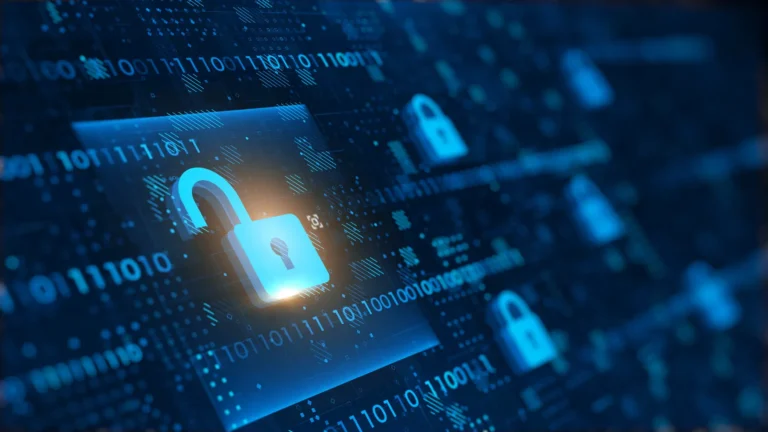
In the world of cryptocurrencies, blockchain wallets have become essential for users looking to store and manage their digital assets. However, just like any other financial tool, blockchain wallets come with their own security risks. As the adoption of cryptocurrencies grows, so does the need to protect your blockchain wallet from potential threats. Understanding blockchain wallet security is crucial for anyone who wants to keep their funds safe and secure. In this article, we’ll explore essential tips and best practices to safeguard your blockchain wallet and avoid common security pitfalls.
What is a Blockchain Wallet?
A blockchain wallet is a software application that allows users to send, receive, and store cryptocurrencies securely. Blockchain wallets come in many forms, including hot wallets (online) and cold wallets (offline). Hot wallets are more convenient for frequent transactions but are vulnerable to online threats. Cold wallets, on the other hand, offer better security by keeping your private keys offline, away from potential hackers.
1. Use Strong Passwords and Two-Factor Authentication (2FA)
One of the most fundamental yet effective ways to secure your blockchain wallet is by using strong, unique passwords. A weak or commonly used password is an open invitation to hackers. Create a password that combines uppercase and lowercase letters, numbers, and special characters to increase its strength.
Additionally, enabling two-factor authentication (2FA) adds an extra layer of protection. With 2FA, even if someone manages to acquire your password, they won’t be able to access your wallet without the second factor, such as a code sent to your mobile device. Many popular blockchain wallet services offer 2FA as a feature, so be sure to activate it.
2. Choose a Secure Wallet Provider
Choosing a reputable and secure wallet provider is essential in the battle for blockchain wallet security. When selecting a wallet, look for one that uses strong encryption methods and has a track record of safeguarding user funds. Research wallet reviews and ensure the provider has a history of addressing security vulnerabilities quickly.
Some wallets also provide features like multi-signature support, which requires multiple signatures before a transaction can be processed. This can enhance security by ensuring that no single person can authorize a transaction on their own.
3. Backup Your Wallet and Private Keys
Backing up your blockchain wallet and storing your private keys securely is crucial. Your private key is the only way to access your funds, and losing it means losing access to your cryptocurrency permanently. Wallet backups are essential in case of device failure, accidental deletion, or theft.
Make sure to store your backup in a secure, offline location—preferably in a hardware wallet or on paper wallets. If you decide to keep backups online, make sure they are encrypted and stored on trusted platforms.
4. Avoid Phishing Scams
Phishing is one of the most common tactics used by cybercriminals to steal access to blockchain wallets. Scammers often disguise themselves as legitimate services or wallet providers and trick users into entering their private keys or other sensitive information.
To avoid phishing attacks, never share your private keys or recovery phrases with anyone. Be cautious about clicking on links in emails or text messages, especially if they ask for sensitive information. Always verify the authenticity of any website before entering your details. Use official wallet apps and make sure that any website you visit is legitimate.
5. Enable Multi-Signature Transactions
For an added layer of security, consider enabling multi-signature transactions on your blockchain wallet. Multi-signature wallets require more than one key to authorize a transaction. This means that even if one of your private keys is compromised, the attacker would still need access to the other keys to complete the transaction.
This method is especially useful for users who manage large sums of cryptocurrency or businesses that require collective decision-making for fund transfers.
6. Regularly Monitor Your Wallet
Staying vigilant is key to protecting your blockchain wallet from unauthorized access. Regularly monitor your wallet for any suspicious activity, such as unapproved transactions. Many wallet providers offer transaction alerts that can notify you of any activity within your account.
Set up notifications on your phone or email, so you are alerted to any changes or attempts to access your wallet. If you notice anything suspicious, take immediate action to secure your wallet, such as changing your password or transferring your assets to a safer wallet.
7. Use Cold Wallets for Long-Term Storage
If you’re not planning on accessing your cryptocurrency frequently, consider storing it in a cold wallet for added security. Cold wallets are offline and not connected to the internet, making them immune to online hacks and malware.
Popular cold wallets include hardware wallets such as the Ledger Nano or Trezor, which store your private keys on a physical device. These wallets are ideal for users looking to hold their cryptocurrency long-term without worrying about frequent threats.
8. Stay Updated on Security Practices
Blockchain technology and security practices are continually evolving. Stay updated with the latest security measures and ensure that your wallet provider is implementing the latest encryption protocols and security enhancements.
Also, make sure to update your wallet software regularly. These updates often contain important security patches that protect your wallet from newly discovered vulnerabilities.
Conclusion
Blockchain wallet security should be a top priority for anyone dealing with cryptocurrency. By following these essential tips—using strong passwords, enabling two-factor authentication, choosing a secure wallet provider, backing up your wallet, avoiding phishing scams, enabling multi-signature transactions, and using cold wallets—you can significantly reduce the risk of losing your assets. Remember, cryptocurrency is irreversible, and once your funds are gone, it can be very difficult, if not impossible, to recover them. Stay vigilant and proactive about securing your blockchain wallet to protect your valuable digital assets.